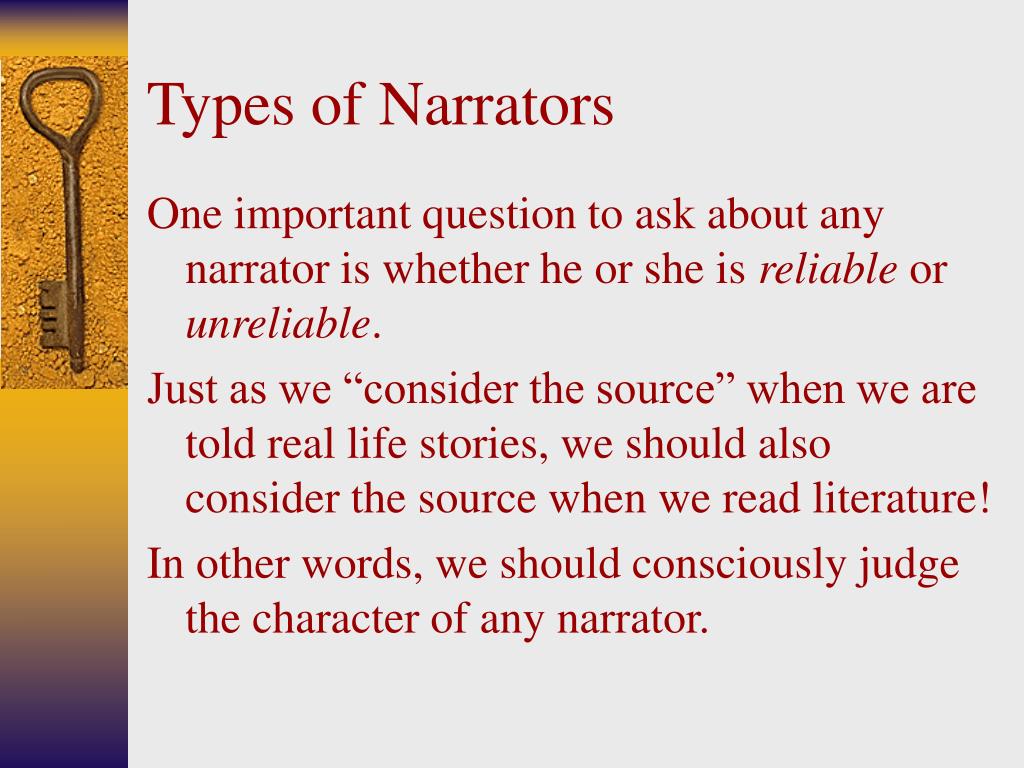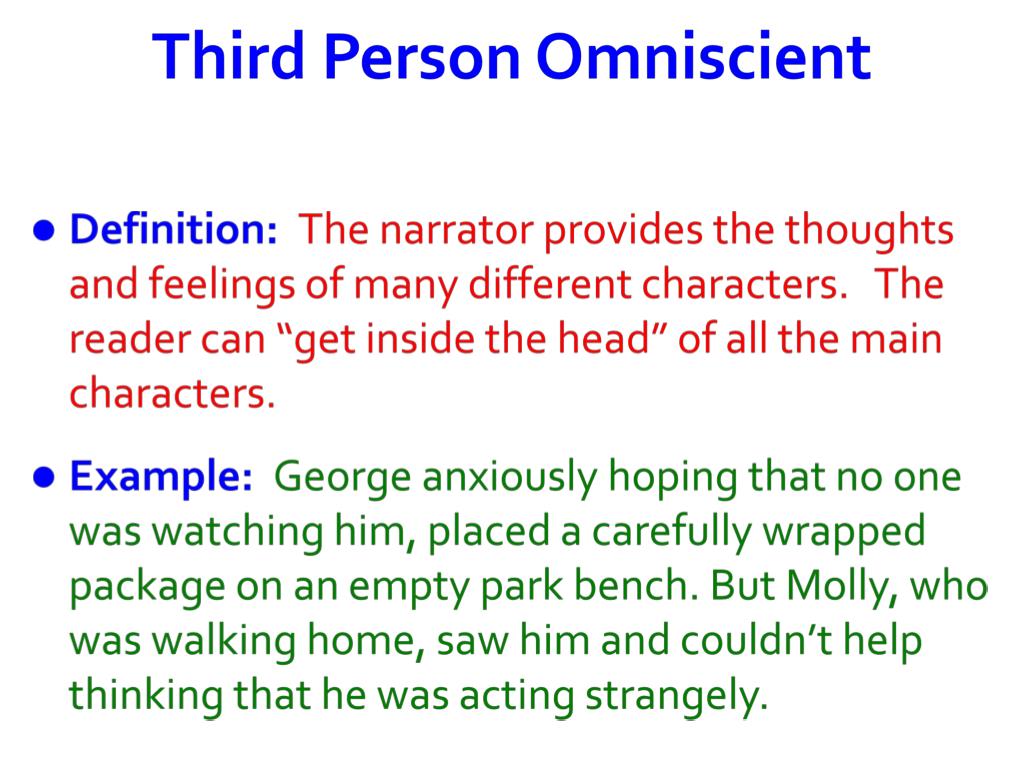

“jump to page 50 if you turn left on the road, or jump to page 70 if you turn right”).Ī third person narrator is not a part of the story, and refers to all of the characters (including the protagonist) using “he” and “she.” Using a third-person narrator gives an author the most options and flexibility in terms of how the story is told.

Second person narration is used for “choose your own adventure” books, where you, the reader, have to decide what happens next in the story (i.e. In some cases, that also implies that perhaps the narrator or main character could even be you, the reader. In a second person narrative, the person telling the story uses “you” to describe the main character or narrator. In addition to fiction, autobiographies use first-person narrative structure because the book is about the author himself.Ī second person narrator is fairly unusual.

One of the most interesting things about a first person narrator is that he or she can actually be someone unreliable-since the audience is experiencing the story as the narrator personally understands it, the point of view is very subjective and opinionated in ways that may not reveal the whole truth or the “full story.” Often, that means the reader learns the story alongside the narrator as it unfolds, hearing the narrator’s thoughts and feelings and understanding experiences in the way the narrator himself experiences them. He/she tells the reader what is happening from his/her own point of view, using “I,” “me” and “myself” to tell the story. Third person and first person are the most common types of narration that authors employ in their writing, but the lesser known second-person narrator also exists!Ī first person narrator is a character inside the story. This is about the time I lost the most important hotdog eating contest of my life.Īuthors use several types of narrators, or narrative styles (see Related Terms).
FICTIONAL NARRATOR DEFINITION LITERATURE PROFESSIONAL
My name is George, and I’m a professional speed eater. Others may tell it differently, but only in my version will you hear the entire truth, because only I know the real devastation of the events that unfolded on the day that changed my life forever. It’s not an easy one to witness, for it’s about one of the worst things that ever happened to me.
:max_bytes(150000):strip_icc()/getty_narnia-56af955e5f9b58b7d01ad364.jpg)
Here’s an example of a narrator who is telling the story from his point of view: Though technically any type of written work has a narrator (since all information must be told from some point of view), its most important role is in fiction, where the style of narration determines everything about how the story is told, experienced, and understood by readers. Or, it may be an all-knowing presence who knows everything about the whole story, its setting, its characters, and even all of its history. It may be someone who is outside the story but has access to a character’s or characters’ thoughts and feelings. It may be a completely neutral observer or witness sharing what he sees and experiences. Every work of fiction has one! The narrator can take many forms-it may be a character inside the story (like the protagonist) telling it from his own point of view. A narrator is the person telling the story, and it determines the point of view that the audience will experience.


 0 kommentar(er)
0 kommentar(er)
